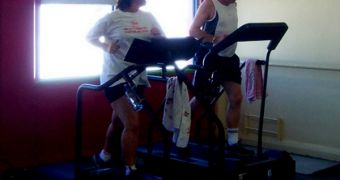Most people who are overweight and want to lose a few extra pounds ask themselves if they should go about achieving this via gastric bypass, or simply sticking to physical exercises. There are numerous proponents and critics to both methods, but a recently-released study shows that there is little difference between how many pounds can be lost with either of the techniques. The thing that sets them apart is how easily people can maintain their desired weight.
Rhode Island researcher Dr. Dale S. Bond, at the Brown University in Providence, and colleagues found that people who used to work out to get rid of unwanted fat had to make an extra effort to keep their weight in check, as opposed to those who got a gastric bypass, who simply felt no need to eat, and could not gain weight altogether. On the other hand, exercising all the time also promotes the well-being of the cardiovascular system and that of the lungs, so the benefits outweigh minor inconveniences.
"Designing methods to increase resistance to cues that trigger overeating among individuals who have achieved large weight losses through bariatric or non-surgical methods may assist in preventing weight gain," the paper says.
The research also found that those who had a surgery tended to eat a more fatty diet, with a lot of fast food, even if that was the cause of their obesity in the first place. Also, they spent a negligible amount of time practicing sports, although their doctors advised them to engage in a more active lifestyle.
On the other hand, those who lost weight by non-surgical means took better care of themselves, in that they adopted a more balanced diet and engaged in a healthier lifestyle, because they were constantly under the threat that their extra pounds would return, and they were determined to keep them away. The results of the study were published following a 5.5-year long trace of 315 individuals who lost weight through one of the two methods.

 14 DAY TRIAL //
14 DAY TRIAL //